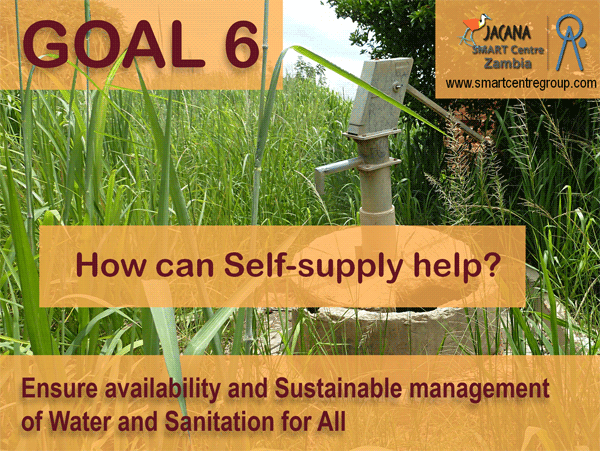 The SMART Centres were represented at the annual WEDC conference in the UK (24th to the 28th of July 2017) and had a stand together with Transform International. Presentations bij the SMART Centres on Self-supply included:
The SMART Centres were represented at the annual WEDC conference in the UK (24th to the 28th of July 2017) and had a stand together with Transform International. Presentations bij the SMART Centres on Self-supply included:
- Supported Self-supply as a key to reach water, food and poverty related SDGs by Henk Holtslag
- How can Self-supply help reaching SDG 6? by Rik Haanen
Other presentations on Self-supply were given by Dr. Sally Sutton and Dr. Peter Harvey. Both clearly indicated that (supported) Self-supply is essential to reach the SDG 6. The presentation of Peter Harvey showed that for Zambia, where a large part of the unserved live in communities of less than 250 people, water access via family wells could be 6 times cheaper than using conventional communal water supply. Compared to communal wells, Self-supply wells have advantages like convenience and more hygiene since water is near, and possibilities of food production for own use and sales to local markets. As presented at the RWSN conference in 2016 other advantages of family wells include the high ownership and the fact that families share water with others so Self-supply can become communal supply. A topic related to Self-supply is house water treatment. A successful programme on selling effective and affordable water filters in Tanzania was presented by Dr. Annemarieke Maltha of Basic Water Needs.
Many more papers, presentations and posters can be downloaded under Resources.

